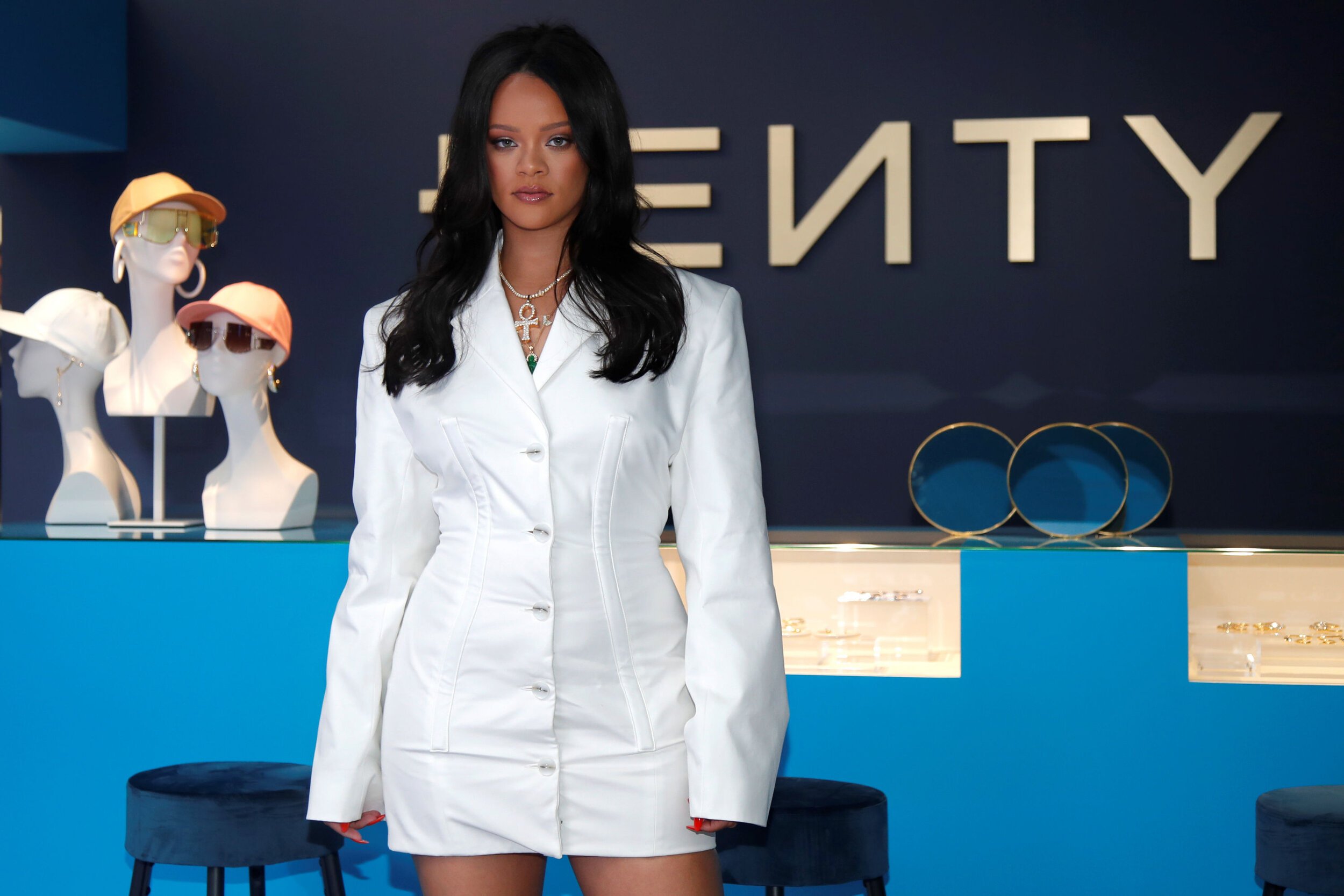From Fenty To House Of Deréon...Why Do Some Celebrity Fashion Brands Never Last?
In February, luxury conglomerate LVMH announced that Rihanna’s fashion label Fenty will close, less than two years after opening. “LVMH and Rihanna reaffirm their ambition to concentrate on the growth and the long-term development of the Fenty ecosystem, focusing on cosmetics, skincare and lingerie,” LVMH stated to WWD, reassuring fans that Rihanna’s hugely popular cosmetic lines Fenty Skin and Fenty Beauty as well as lingerie line Savage x Fenty will continue to operate as normal.
Rihanna at the launch of Fenty | Charles Platiau, Reuters
Jennifer Lopez poses with models showing her Sweetface range | Vince Bucci, AFP, Getty
So what went wrong for Rihanna? Could Covid19 have played a part in decreasing sales? Or perhaps Fenty like many luxury brands, struggled to maintain its place amongst other lines competing for sales in the ruthless retail industry. Either way it’s no secret that starting a fashion house, whether you’re fortunate enough to carry a celebrity name or not is a tough business. Even for Rihanna, a global figure and no stranger to fashion – she became creative director for Puma in 2014 and designed three successful collections for River Island in 2013 – launching a fashion label proved too difficult a job.
Beyonce and Tina Knowles for House of Dereon | Credit Karl Prouse, Catwalking, Getty
She’s not alone. For years, countless celebrities have embarked on launching fashion lines, with big dreams of creating global retail empires. But not everyone can be a Mary-Kate & Ashley Olsen or Victoria Beckham success story. In 2003, Jennifer Lopez branched into fashion launching JLO which found initial success amongst fans. Soon after, the singer started diffusion lines, JustSweet and Sweetface but all collapsed after the 2007 recession. JLO failed to make a profit and her other brands was cancelled shortly after. "I just felt like I never got a fair chance to do it right," Lopez recalled to The New York Times. Beyonce too tried and failed to break into fashion. House of Deréon, inspired by her grandmother and launched with mother Tina Knowles, aimed to bring a sense of ‘couture, kick and soul’ to womenswear fashion. In 2012, the brand was forced to close due to disappointing sales.
Not all rappers have been as successful as Kanye West’s YEEZY or Jay-Z’s Rocawear. Lil Wayne launched Foreign Money in 2007, a menswear brand which didn’t last a year. With dire sales, the brand was discontinued after a few months, similar to Benjamin Bixby launched by Andre 3000. A mixture of preppy and formal wear, the brand failed to appeal in the menswear market. Even its launch at Harrods in 2008 was a failure – half the collection got stuck in customs. Bow Wow tried a different angle into the clothing industry in 2003, creating a childrens line called Shago – letters taken from his real name Shad Gregory Moss. Kids weren’t convinced and the rapper was forced to discontinue his label after three years.
Hilary Duff poses alongside her brand Stuff by Hilary Duff | Unknown
Actresses too spent the noughties trying to break into fashion. In 2008 Lindsey Lohan launched 6126, a leggings line which led to the actress being sued by her clothing manufacturer for $5 million after the brand collapsed, whilst Natalie Portman’s vegan shoe line, Te Casan, lasted less than a year – shoe prices started at $200. And who could forget Stuff by Hilary Duff? The actress launched her lifestyle brand in 2004, selling in Claire’s and Target, but by 2008 it was over.






